Better Cotton Partners with Planboo to Reduce Emissions Using Cotton Crop Waste
Better Cotton has teamed up with climate technology startup Planboo to help cotton farmers reduce greenhouse gas emissions – and earn carbon credits for it.
Read moreBetter Cotton has teamed up with climate technology startup Planboo to help cotton farmers reduce greenhouse gas emissions – and earn carbon credits for it.
Read moreAbdur Rehman, Better Cotton Farmer, demonstrating habitat creation for beneficial birds (birdhouses and water dishes).
Read moreBetter Cotton has released its first US Impact Report, which spotlights key data insights and shows the impact of cross-sector collaboration in the US.
Read moreCheck out our showreel video and all the highlights from the Better Cotton Conference 2025.
Read moreBetter Cotton has announced that it will become a regenerative standard within the next year, further strengthening its ongoing commitment to protect and restore the environment and improve conditions for cotton farming communities around the world.
Read moreBetter Cotton has announced Nick Weatherill, former Executive Director of the International Cocoa Initiative (ICI), as its new Chief Executive Officer.
Read more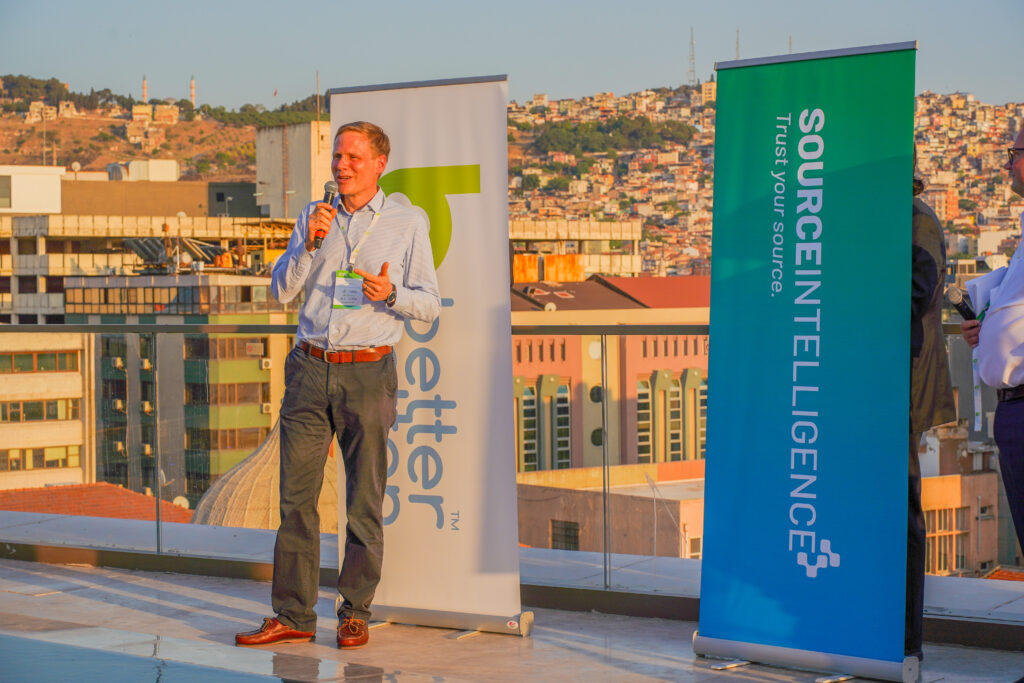
Alexander Ellebrecht, Account Executive at Source Intelligence
Source Intelligence was Sponsor at the Better Cotton Conference 2025 in İzmir, Türkiye
At Source Intelligence, we help companies strengthen supply chain visibility and compliance through two complementary platforms. C Map enables organizations to meet complex regulatory requirements by leveraging bill of materials (BOM) data across multiple tiers of their supply chain. ChainPoint serves standards and scheme holders, supporting first-mile traceability and capturing critical data that is often difficult to obtain. We are now integrating these platforms. This will deliver deeper transparency and greater value, not only for standards organizations, members, and stakeholders, but also for shareholders. Because today, transparency is not optional anymore.
Better Cotton’s Phased Approach
Better Cotton has taken a thoughtful, step-by-step approach to building traceability using ChainPoint. They started with ginner-to-spinner traceability, then gradually extended the scope and introduced more detailed claim types. Several years ago, the system was based largely on a mass balance approach—a method that allows Better Cotton Claim Units (BCCUs) to be traded through the supply chain while maintaining an associated sustainability claim, even if the cotton is mixed with conventional sources. In recent years, the demand for visibility has grown. More companies now want to know with certainty: “Is this 100% Better Cotton that we are buying?”
This shift has led to the adoption of segregated models, which keep Better Cotton physically separate from conventional cotton throughout the chain. These models provide higher transparency and stronger claims. It’s a journey Better Cotton is still on—and one we are proud to support.
Impact and Transparency where it matters
The cotton industry is aware of its impact. We hear many farmer stories, of farmers who could improve their production with training and support from Better Cotton. Topics like irrigation, regenerative agriculture, are addressed, and it’s good to discuss this with the sector at the Better Cotton conference. These discussions help retailers and companies, at the end of the supply chain, understand the problems on the ground, while also creating opportunities for more collaboration.
With the existence of social media, companies are becoming increasingly responsible and accountable for their supply chain activities. We also see some government regulations and compliance topics, so there is really a driver for transparency. Transparency will not go away. It will stay on the agenda.
One principle I particularly appreciate is controlled transparency. This means not every piece of information is available to everyone, but rather that access is purposeful and relevant. This approach fosters trust, encourages openness, and enables more efficient collaboration.
Proud of Progress, Committed to More
We should be proud of how far we’ve come, but we must also keep asking: What can we do better? By applying proven quality management practices, we can work more efficiently, accelerate progress, and deliver lasting improvements. We’re also seeing strong growth in the collection and management of reliable data. Automation is making documentation less of a burden and more of an opportunity—helping people focus on insight and action rather than paperwork.
The Better Cotton Conference matters because it’s ultimately about people. Progress in supply chains depends on collaboration, and while we have many digital tools—Zoom, Teams, and others—that make connecting easier, nothing replaces the depth of understanding that comes from meeting in person.
Read more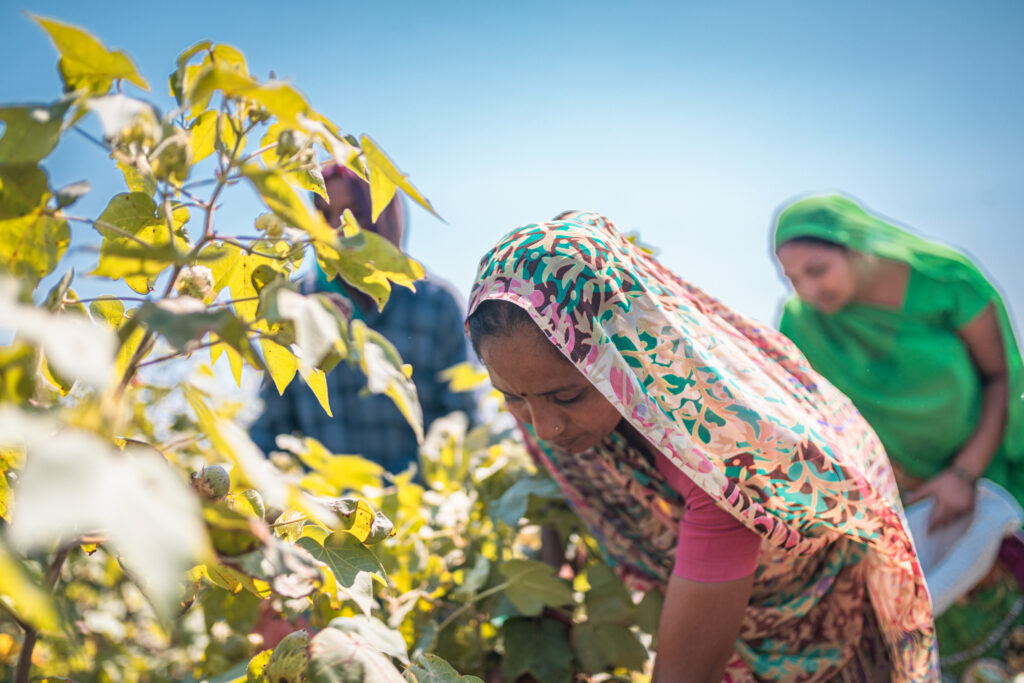
ISEAL has published version 2 of its Sustainability Claims Good Practice Guide, a critical resource for sustainability systems across industries, and Better Cotton is proud to have taken part in its consultation process. Our contributions, alongside the ones from other organisations in the sector, have helped shape this latest update, contributing to a shared commitment to strengthen the credibility and transparency of sustainability claims globally.
The guide outlines key good practices for sustainability systems in the management of claims and labels in a responsible, accurate, and trustworthy way. For people and organisations working with complex supply chains and diverse stakeholders, this document plays a vital role in ensuring that public-facing claims reflect both the substance of the work and the integrity of data.
As sustainability communication continues to evolve, tools like this guide help ensure we remain aligned with current and emerging expectations from regulators, businesses, and consumers alike.
What’s New?
Version 2 of the ISEAL guide has been updated to reflect the realities of today’s sustainability landscape. This includes consideration of recent regulatory developments, such as new laws and standards concerning green claims, as well as the increasing role of digital platforms in sustainability messaging.
With more claims being shared across websites, social media, and other online channels, the update helps sustainability systems adapt their communications to remain transparent and credible in a fast-paced digital world.
The guide also features expanded guidance on the wide range of claim types that organisations might use, such as product-related claims, organisational claims, or performance-based claims. It offers clear recommendations on how to develop, manage, and monitor these claims in a way that minimises risk and upholds public trust.
Importantly, this version is fully aligned with the ISEAL Code of Good Practice, which means it reinforces consistency and best practices across sustainability systems. This alignment ensures that claims are not only accurate but also made within a structured, standardised approach to sustainability assurance.
To make the guidance even more actionable, the update includes a new tool: the “What & Why Clauses” quick reference document. This is a checklist-style summary that breaks down the guide’s core components into digestible, practical elements, making it easier for scheme owners and their partners to apply the recommendations in real time.
Relevance for Better Cotton
This updated guidance comes at a particularly timely moment for Better Cotton, as we continue to strengthen our own Claims Framework. By ensuring that our claims align with the latest industry-wide expectations and best practices, we can provide greater clarity and confidence to all those who engage us, from retailers and brands to farmers and consumers.
Our participation in the consultation process was an important opportunity to bring our perspectives to the table and help shape a guide that serves the diverse needs of the sustainability community.
As sustainability claims face increasing scrutiny, from regulators, media, and consumers alike, the need for credible, consistent, and transparent communication has never been more important. This update to the Sustainability Claims Good Practice Guide offers a timely and practical resource to support those working to improve sustainability practices and strengthen trust across supply chains.
To explore the full guide and access supporting materials, please visit the ISEAL website.
Read moreBetter Cotton has launched a public consultation on targeted updates to its Principles & Criteria, the farm-level Standard and one of the core components of the Better Cotton Standard System.
Read more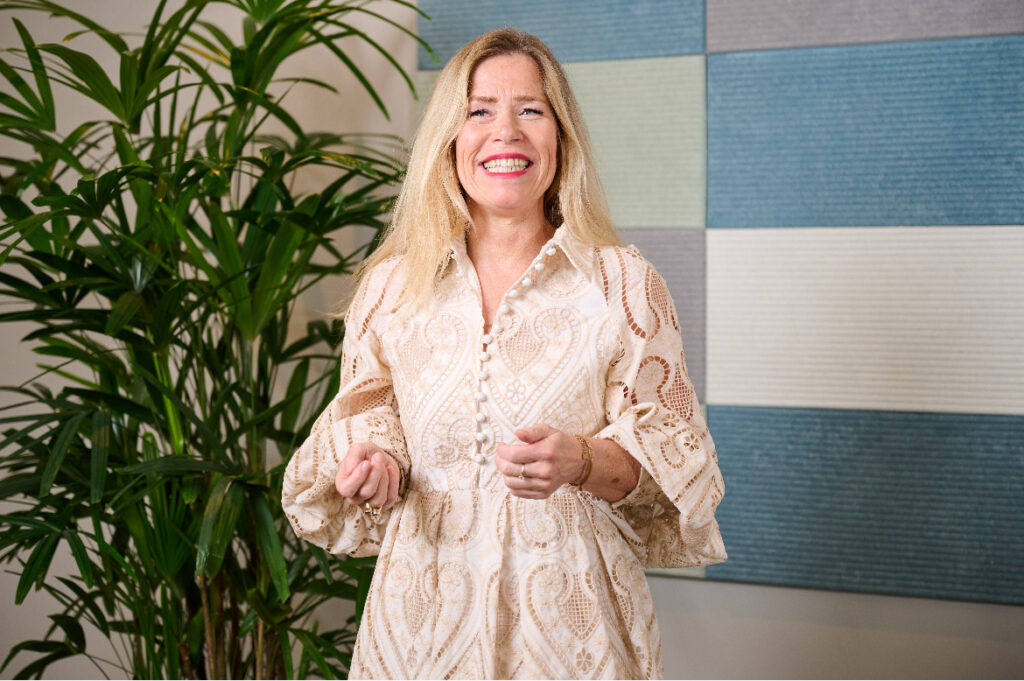
By Lonneke de Kort, Business Unit Manager, Textiles, Recycling & Alternative Materials at Control Union
Control Union was Premium Sponsor at the Better Cotton Conference 2025 in İzmir, Türkiye
In today’s textile sector, responsible sourcing is no longer a niche concept – it’s a growing expectation. As global brands, manufacturers, and suppliers commit to sustainability goals, the ability to trace raw materials back to verified sources has become essential. For Better Cotton, this means not only promoting sustainable practices at farm level, but also ensuring that cotton can be credibly traced throughout the supply chain.
Control Union plays a significant role in the Better Cotton system as an independent third-party certification body. We share Better Cotton’s vision for a more sustainable global cotton sector – one where integrity, transparency, and measurable impact are at the core.
With decades of experience in sustainability assurance, we operate in key production regions including Türkiye, India, Pakistan, Brazil, and parts of Africa, offering consistent, high-quality auditing services through local experts in local languages. This global presence enables brands and supply chain actors to benefit from working with one certification body across multiple geographies—combining consistent global standards with regional insight and responsiveness.
As one of the world’s leading certification bodies, we play a critical role in strengthening the Better Cotton Chain of Custody (CoC) system and ensuring that its core principles are upheld across diverse and dynamic supply chains.
The Better Cotton CoC framework is designed to track the journey of Better Cotton through each stage of the supply chain – from farm to finished product. It allows businesses to demonstrate that their sourcing decisions contribute to more responsible cotton production practices. As an independent assurance provider, our task is to verify that this system functions reliably and that participating sites meet the requirements defined by the Better Cotton CoC Standard.
Moreover, Control Union offers certification services across other widely recognized textile standards, such as Better Cotton, Regenagri, GOTS, GRS, RCS, and OCS, creating a one-stop-shop for brands and suppliers committed to sustainability. This integrated service offering not only streamlines certification processes but also reinforces traceability and accountability across different material streams.
Our work goes beyond confirming adherence to documented requirements – it helps build confidence in the entire system. Third-party audits offer objective validation of sustainability claims, playing an essential role as the Better Cotton CoC system evolves, particularly with the introduction of Physical Chain of Custody models. As traceability becomes increasingly important, independent assurance supports the credibility and reliability that supply chain actors and end consumers seek.
We have observed that over time, the level of awareness and engagement within the sector is growing. More and more organisations are beginning to view responsible sourcing not just as a compliance necessity, but as a long-term strategic approach. This shift reflects a deepening understanding of Better Cotton’s goals and the value of participating in a transparent, verifiable system.
With a robust global infrastructure and a strong local presence, Control Union is well-positioned at the intersection of agricultural production and textile manufacturing. In Türkiye – a major player in both cotton cultivation and textile exports – our teams carry out Chain of Custody audits across a wide range of operators, ensuring alignment with the Better Cotton CoC Standard while respecting regional dynamics.
Our impartiality is a cornerstone of our work. As a third-party certification body, we do not provide consulting or guidance for compliance. Instead, we focus solely on verifying whether facilities meet the required standards through objective and consistent evaluation. This separation between verification and consultancy is vital to maintaining the integrity and credibility of the assurance process.
The role of Control Union is particularly critical during the farm inspection stage of the Better Cotton system. Through on-site inspections and field audits, Control Union verifies that the cotton farms comply with Better Cotton’s production principles, environmental standards, and social criteria.
This ensures that the raw cotton entering the supply chain genuinely originates from farms practicing sustainable and responsible agriculture.
These farm-level controls safeguard the integrity of the entire program by preventing non-compliant or fraudulent practices from entering the certified supply chain. As such, they form the foundation for the credibility and transparency of the Better Cotton label all the way to the end consumer. This guarantees that products labeled as “Better Cotton” are genuinely produced from cotton within the certified system.
As Better Cotton continues to expand its global reach and strengthen its Chain of Custody (CoC) system, Control Union remains unwavering in its commitment to delivering credible, rigorous, and independent verification services that embody the highest standards of professionalism and integrity.
We take great pride in contributing to a system that upholds traceability, accountability, and a culture of continuous improvement across the cotton supply chain.
In alignment with Better Cotton’s requirements, certain retailer and brand members – depending on their sourcing volumes – are obliged to verify their annual Better Cotton procurement through an independent third-party audit.
At Control Union, we see our role as going beyond mere compliance checks; we act as guardians of trust, helping to secure the credibility of sustainable sourcing commitments and reinforcing the transparency that consumers and stakeholders increasingly demand.
Read moreWe have successfully applied to the ISEAL Innovations Fund to develop and pilot a simple, digital wage sampling tool aimed at improving wage transparency on smallholder farms in Pakistan by providing greater clarity on workers’ wages.
Read more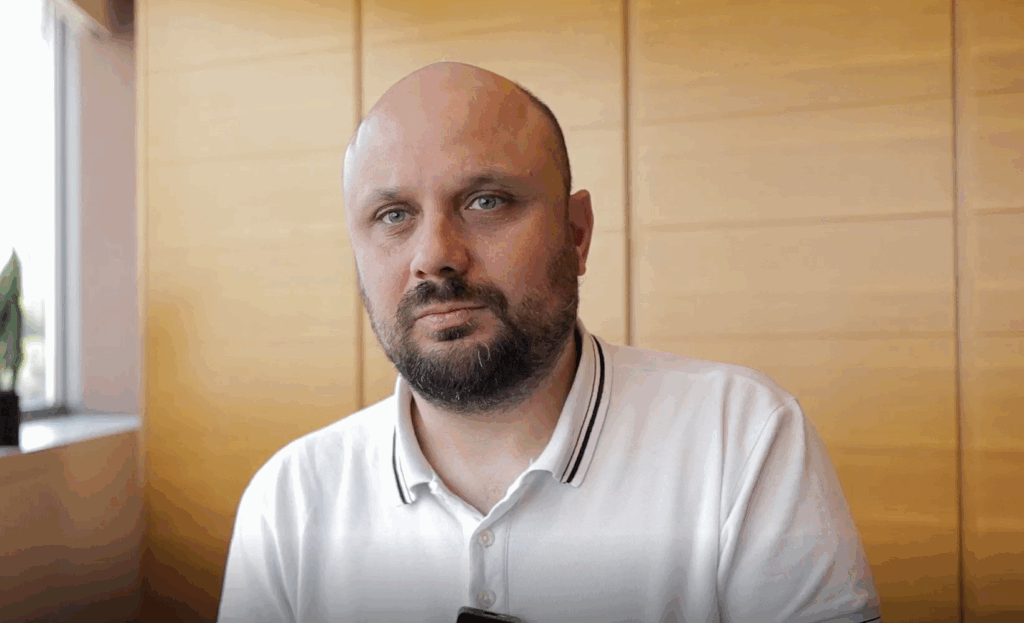
By Ali Ertuğrul, Technical and Quality Manager at USB Certification
USB Certification was Headline Sponsor at the Better Cotton Conference 2025 in İzmir, Türkiye
I’m an environmental engineer, so sustainability is at my heart. As the technical and quality manager for textile and recycling certification departments at USB Certification, I make sure the programme requirements, including those with Better Cotton, are implemented correctly.
This year, we started working in Pakistan with farm-level certification for Better Cotton, something which has been pretty exciting for us. Even though we had done farm certification before, in other countries, this is quite special–and we believe that sustainable production practices will flourish there.
The working models, especially in supply chains, are quite different from country to country. You can have bigger production areas in certain countries, like Bangladesh, or you can have a network of suppliers and subcontractors working together, as in Turkey. So, while we are doing certification, we are also guiding them towards achieving their goals in traceability, to ensure their compliance against the requirements.
Data and collective work
The biggest risk in the sustainability sector right now is greenwashing. There’s nowhere to go if we cannot back up our claims with data, with actual, factual, and verified data. But we also have to propagate that data throughout the supply chain.
In order to be able to do that, you need a technological infrastructure to ensure traceability from the extraction of the raw material–or production of the raw material–all the way to the labels, on the consumer facing product itself.
You cannot do it without data, you cannot do it without assurance, and you definitely cannot do it without in a technological infrastructure.
Different stakeholders need to work together to reach sustainability goals. First of all, we need programme ownership, assurance provider, and certification. We are part of a triangle which are interacting with the other two areas.
Programme owners set the requirements, the criteria, for the compliance of certified entities. They also assign assurance providers, so they can actually verify the system of a certification body, not only monitoring the outcome of the work that the certification bodies are doing. They also make sure the certification bodies have a mature, competent system capable of assessing the requirements of the standard–in the audit and the certification process.
Eyes on the ground
There is another responsibility: we are the eyes on the ground. If we see any deviations, if there’s any ground reality that is deviating from the standard requirements, it’s our responsibility to have that communicated to the programme owners. It is part of the monitoring, evaluationand learning cycle.
As a programme owner, Better Cotton is heavily involved with the implementation of the standard itself, through their implementation partners all over the world. That means, it also gives the standard a localised context. In that sense, it was actually good to witness such a nuanced approach to standard requirements.
With the new certification paradigm that has come up, the collaboration between the program owner and the certification body, like USB Certification, will be tighter in the coming years, thanks to the level of assurance. The level of data collaboration will increase.
Hearing from farmers
At this year’s Better Cotton Conference, the sessions brought some provocative questions into the spotlight, which I quite enjoyed. Also, this year’s conference’s motto was ‘It Starts with Farmers’, and it is always good to hear the opinions of farmers.
Another thing I enjoyed was the networking. The participants were not passively listening to the sessions, they were engaging in conversations with different kinds of stakeholders at the same time. I would say the conference has moved the mission forward.
This is an important event, as it is a hub and a ground, a chance to bring all different stakeholders into the same place. Also, a chance to reiterate what I said before, that this is a dialogue, this is a conversation. It’s also an ever-changing landscape, the market for sustainability and sustainable certification is rapidly changing. So, without engaging in meaningful conversations, we cannot do it.
This is one of the missions of Better Cotton as well, and one of the missions of this year’s conference.
Read more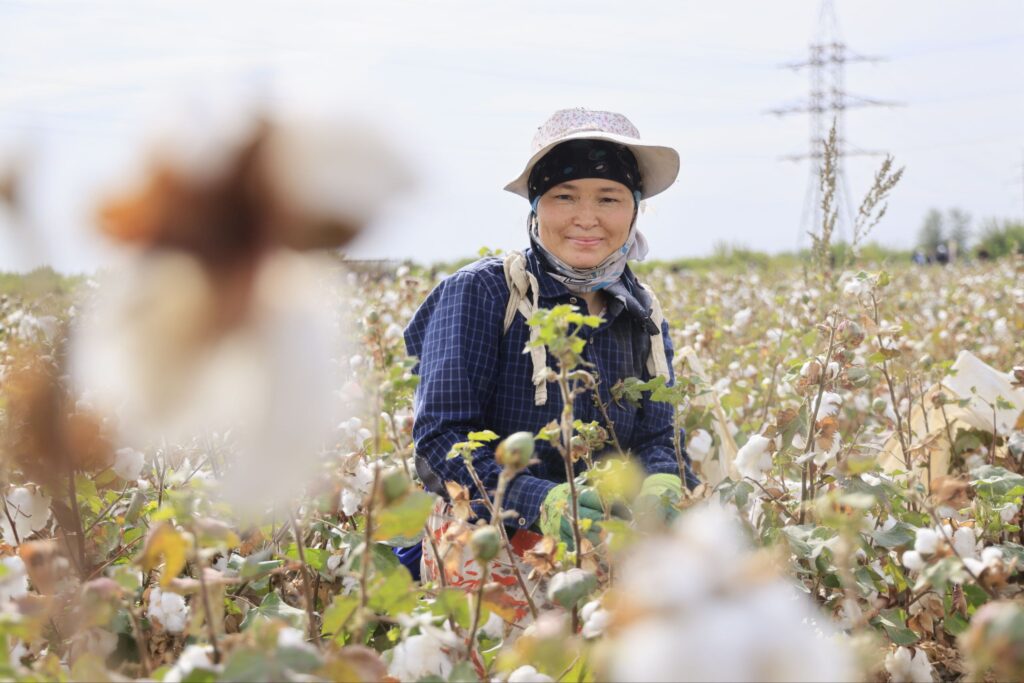
Better Cotton, the world’s largest cotton sustainability initiative, has announced significant progress in the delivery of its Uzbekistan programme, including the adoption of stronger and more refined approaches to due diligence and decent work activities.
Katerina Gorbunova, Head of Better Cotton’s programme in Uzbekistan, said: “In collaboration with our Programme Partner, the German Agency for International Cooperation (GIZ), we have strengthened the programme’s framework and the services we offer to accelerate change across the country’s cotton sector.”
Better Cotton’s Uzbek programme has strengthened in-country verification of licensed clusters by building the capacity of independent civil society groups and third-party auditors, plus implementing an updated due diligence methodology to ensure more robust and local oversight.
This new-and-improved approach includes in-depth interviews and questionnaires with both cluster management and workers. It also consists of checks on financial health, ethics, and governance, providing a more comprehensive view of risk and performance across participating enterprises. The insights generated through this process are used to inform targeted interventions.
Decent work-related actions have also evolved in light of Better Cotton recently becoming a certification scheme. The organisation now conducts preliminary assessments of newly onboarded clusters before the season begins to determine their readiness for certification and if requirements are not met, audits are postponed to the following season.
For clusters with active licences, second party checks by qualified Better Cotton staff are conducted to identify potential decent work-related issues and, if necessary, trigger a more comprehensive examination by external labour rights monitoring organisations.
Since August 2024, Better Cotton and GIZ have expanded training to cover not only innovative and regenerative agricultural practices, but also social sustainability and decent work principles following recent changes to Uzbek labour laws.
This effort deployed a cascading training methodology to target cotton cluster management on the basis that they can subsequently educate workers, who can then support their peers.
Gorbunova said: “The Uzbek cotton sector has tremendous potential to be a leader in the production of more sustainably produced cotton. This can only be achieved through collaboration, robust and transparent processes, and perseverance. Better Cotton is uniquely positioned to help unlock this potential and will continue to engage stakeholders across the country to make our vision a reality.”
Paul Schumacher, Cotton Project Manager at GIZ Uzbekistan, added: “Today, sustainable agricultural methods, trade facilitations and decent work are no longer parallel efforts, they are parts of one sustainable system. With the right networks and shared effort, as we created within the frame of Better Cotton, we turn individual action into systemic change.”
Notes to Editors